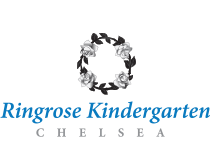page
Daily Activities
8.45 am: Early Birds
We have an early drop off for those that are eager to start the day.
9.00 am: School starts.
The doors open at 9.00 am. The children are welcomed every morning by the Headmistress and are greeted by a hand shake and a "good morning". After greeting their teacher and hanging up their coat and bag the children participate in free play activities sharing equipment and resources. The arrival time is a good opportunity for you to ask to see the equipment and work your child is doing, ask about how your child is settling in or progress in general. The group teachers will be delighted to show you how your child is progressing. A time can be arranged if you need to discuss your child’s progress in greater depth with either the teacher or Headmistress. We are always happy to speak to parents.
It is also a great chance to see the children at play. This is an important part of the school morning and we encourage the children to arrive on time. Free play is followed by morning registration and morning circle/story time. This provides the opportunity for the children to join in with group discussions where they can share news, thoughts and ideas.
Parent's prompt departure when the bell rings is very much appreciated.
At Ringrose we encourage parents to have commenced making their child’s break from home before they join us. On the child's first morning we are happy for the parents to remain for a time but would prefer the child to be left once he/she is settled, in order that they may get a fair picture of what school is about.
Once the child joins us properly however, we like them to be left in our care. Parents will be informed if their child becomes inconsolably distressed. This matter will be something we can discuss with individual parents as necessary.
9.30 am: Singing and Rhyme session.
The children participate in a group singing and rhyme session every morning. This is a good opportunity for the children to be able to move around freely and use their voices. They learn fun songs as well as traditional nursery rhymes but the underlying purpose of these sessions is to teach the children about working as part of a group, taking turns, listening to and following through with instructions and expanding their communication and language skills.
In addition, a trained music and movement teacher takes classes each week. During these lessons the children dance in their bare feet and learn about rhythm, posture, co-ordination and musical interpretation.
9.50 am: Individual lesson time.
Within a nurturing environment, children are individually supported in developing confidence, autonomy and self-respect. Through activities, conversation and practical example, they learn acceptable ways to express their own feelings and to have respect for the feelings of others. They are encouraged to discuss their ideas, make choices, take risks and show perseverance. All children are given the opportunity, as appropriate, to take responsibility for themselves and also the group, its' members and its' property. They are encouraged to work independently and also to take part in the life of the group, sharing and co-operating with other children and adults.
The teachers offer one-to-one support, helping to encourage independent thinking and problem solving skills and there is a good balance between child initiated and adult lead activities. We use Montessori Sand Paper letters to teach the children the phonetic sounds of the alphabet. By tracing the letter sounds children learn the sound and shape of the letter, and gain muscular memory of the shape as a prelude to writing. We also use the 'Jolly Phonics' scheme to help reinforce the sounds through songs and actions. Children are taught that written symbols carry a meaning, to be aware of the purposes of, and when they are ready, to use drawn and written symbols for themselves. Only when a child is totally comfortable with all the sounds do we begin reading. Initially children are introduced to reading three and four letter phonetic blends using the Montessori reading scheme and will then move onto reading books from the Ginn 360 Series and The Oxford Reading Tree.
By means of adult-supported practical experience and with the Montessori numerical equipment, children become familiar with sorting, matching, ordering, sequencing and counting activities that form the basis of early mathematics. As they use their developing mathematical understanding to solve practical problems, children are assisted to learn and use the vocabulary of mathematics, identifying objects by shape, position, size, volume and number. Songs, games and picture books help children become aware of number sequences and when they are ready, to use simple mathematical operations such as adding, subtraction and measurement.
A safe and stimulating environment allows children to explore and experiment with a range of natural and manufactured materials. They learn the features of objects and substances, recognising differences, patterns and similarities, and to share and record their findings. Children are assisted in exploring and understanding their environment, both within the group and the wider community. Children learn about animals and plants and extending their understanding of the world. Through well planned themes and topics the children discuss individual interests, people and communities. A range of safe and well-maintained equipment enables children to extend their technological understanding, using simple tools and techniques as appropriate to achieve their intentions and solve problems.
10.30 am: Playground
Outdoor play is very important. We use St. Luke's Playground (which we rent privately each morning). It is a safe and enclosed area, and can be easily reached by walking through St. Luke's Gardens. We take out bats, balls and hoops and the children are free to run, skip, hop and jump in a safe and secure environment. Playtime is an important part of the school morning; it is also an exercise in self-sufficiency, as the children learn to put on their own coats, hats and mittens. A range of equipment and opportunities, both indoors and outdoors, allows children to develop confidence and enjoyment in the use and development of their own bodily skills. A high level of adult supervision enables children to create and meet physical challenges safely, developing increasing skill and control in moving and balancing.
Once a week the children will participate in a Playball session which is run by Gavin and his wonderful team of instructors. The aim of Playball is to expose young children to constructive and enjoyable movement through a multi-activity programme. The program follows a holistic approach and offers learning opportunities and experiences relating to the cognitive, physical, social and emotional development of the child. Playball takes advantage of developmental windows of opportunity, by providing a wide range of suitable movement skills, sports skills and physical activities in a safe and secure environment - perfect for optimal learning!
11.00 am: Snack time.
On return from the playground we serve the children with a glass of milk/water and snack of either, fruit (apples, bananas, and grapes), cheese and crackers or rice cakes. Occasionally we offer two plain biscuits (or a chocolate one on someone’s birthday). If for any reason you do not wish your child to consume these products, please inform us beforehand.
Parents are asked to send their child to school with a named water bottle. This will be kept in the trays provided and sent home at the end of each day.
11.20 am: Arts and Crafts/Free play.
There is a daily arts and crafts session when the children have the chance to discover a wide range of creative activities, including painting, modelling, collage work, assembling, weaving, threading gluing, printing and much more. Children are encouraged to use a wide range of resources in order to express their own ideas and feelings and to construct their individual responses to experience in two and three dimensions. Art equipment, including paint, glue, crayons and pencils as well as natural and discarded resources, provides for open-ended exploration of colour, shape and texture and the development of skills in painting, drawing and collage. In terms of "Free Play", they are actively encouraged to be imaginative, participate in role play and, through the sharing of toys and games, play alongside each other instigating plans and ideas. Children join in with and respond to music and stories, and there are many opportunities for imaginative role-play, both individually and as part of a group.
12.00 pm: Story time.
In both small and large groups, children are encouraged to extend their vocabulary and fluency by talking and listening and by hearing and responding to stories and rhymes. A well-stocked book corner gives every child the opportunity and encouragement to become familiar with books, able to handle them and be aware of their uses, both for reference and as a source of stories and pictures. Children ask 'how' and 'why' in response to stories, providing learning opportunities and make connections with their own experiences. Stories lead to conversations, empowering children to express their own ideas. Repetition of stories and poems establishes the basics of language in children's minds and reinforces learning. Children learn enjoyment of language, including humour and word play. They love to use big words and will often adopt vocabulary from books in their play. Children develop confidence and skill in expressing themselves as they talk together.
We finish off every session with a group story time. This is a nice part of the morning when the children gather together again at the end of the session before going home.
12.10 pm: Collection of the younger groups.
12.20 pm: Collection of the older groups.
Full days are available on Mondays, Tuesdays, Wednesdays and Thursdays.

 020 7352 8784
020 7352 8784
 School Address
School Address








